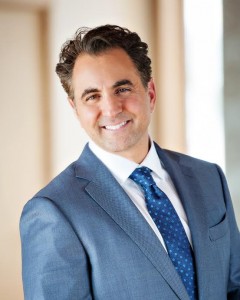 In last week’s post, I explained why detoxification must begin with sugar. I shared a number of mind-blowing statistics related to how much sugar is in products people consume every day, as well as the link between sugar and chronic disease.
In last week’s post, I explained why detoxification must begin with sugar. I shared a number of mind-blowing statistics related to how much sugar is in products people consume every day, as well as the link between sugar and chronic disease.
I also want to encourage you again to go see Fed Up and take the Fed Up Challenge, which can help you correct your body and brain chemistry by going sugar-free for 10 days.
A major obstacle that we as individuals and parents must overcome is the deception of the food industry. A recent study from Cornell’s Food and Brand Lab found that the majority of cereals marketed to children feature characters (Cap’n Crunch, the Trix Rabbit, Lucky the Leprechaun, etc.) that look downward.
These boxes are designed to make direct eye contact with the target audience, which science has shown builds trust and positive feelings toward the brand. In other words, they’re trying to manipulate our children into asking us to buy cereal for them. Characters on cereals that target adults tend to look straight ahead.
These cereal boxes are also strategically placed on shelves according to the height of the target audience. This is what we’re up against as parents. Isn’t it bad enough that the cardboard cereal box probably has more nutritional value than the cereal itself?
In addition to manipulative marketing, the food manufacturers try to mislead us by using dozens of aliases for sugar. Here’s a sampling of the dozens of names the food industry uses to hide sugar in the list of ingredients in the food we buy:
As I’ve said repeatedly, the food industry profits from making us sick. We need to look for sugar aliases on food labels and avoid those products. This can be confusing because added sugars aren’t clearly separated or identified on most food labels.
Remember, ingredients are listed in descending order, beginning with the most abundant ingredients. If sugar or any of its aliases appear in the top five ingredients, that’s a heavily sugared or sugar-added product, so don’t buy it!
Also, be aware that even foods considered healthy – like fruited yogurt, granola bars, instant flavored oatmeal, often have 5-7 teaspoons of added sugar.
We do need sugar in our bodies – naturally occurring sugar.
For example, an apple has sugar in it. It’s called fructose, and God put it there. It’s perfectly balanced.
On the other hand, a granola bar has sugar added by man. This is unnatural, imbalanced sugar that we shouldn’t be putting in our bodies.
If we’re going to change and transform our bodies and reverse the trend of chronic illness in our country, we can’t rely on an industry that makes money by keeping us unhealthy. Let’s educate ourselves and make sure we recognize the aliases of sugar. Know the difference between naturally occurring sugar and manmade, added sugars. Read The Blood Sugar Solution by Dr. Mark Hyman to learn more about ending blood sugar problems.
Change begins with knowledge, and knowledge is power. Let’s show the food industry that we’re too smart to let them take advantage of our families, and let’s call them out when they try to deceive us.
 Dr. James Proodian is an accomplished chiropractic physician and health educator who founded Proodian Healthcare Family of Companies to help people feel better, function better, and live longer. His expertise for the past two decades has been in physical rehabilitation, and he has successfully established himself as a spinal specialist. In his practice, he advocates the science of functional medicine, which takes an integrative approach to treating patients by addressing their physical, nutritional, and psychological needs. Alarmed by the escalation of complex, chronic illness in our country, Dr. Proodian has been speaking to companies and organizations through his “Wellness at Work” program since 1994, motivating thousands of people to make positive lifestyle choices and lead healthier, more productive lives. He can be heard weekly on his radio program, “Proodian Healthcare By Design,” on Tandem Radio.
Dr. James Proodian is an accomplished chiropractic physician and health educator who founded Proodian Healthcare Family of Companies to help people feel better, function better, and live longer. His expertise for the past two decades has been in physical rehabilitation, and he has successfully established himself as a spinal specialist. In his practice, he advocates the science of functional medicine, which takes an integrative approach to treating patients by addressing their physical, nutritional, and psychological needs. Alarmed by the escalation of complex, chronic illness in our country, Dr. Proodian has been speaking to companies and organizations through his “Wellness at Work” program since 1994, motivating thousands of people to make positive lifestyle choices and lead healthier, more productive lives. He can be heard weekly on his radio program, “Proodian Healthcare By Design,” on Tandem Radio.